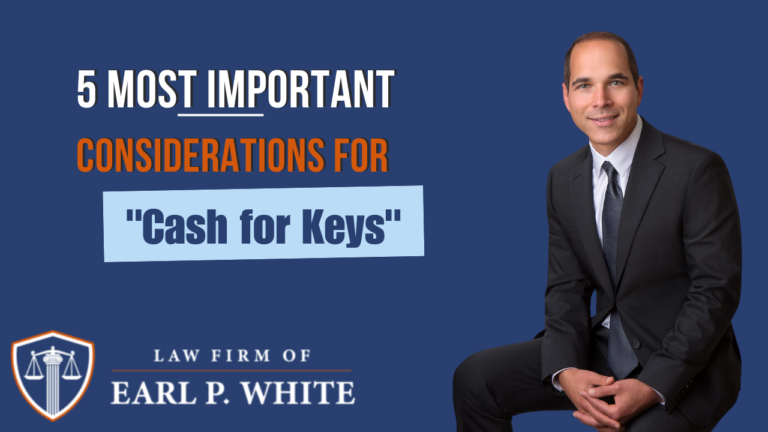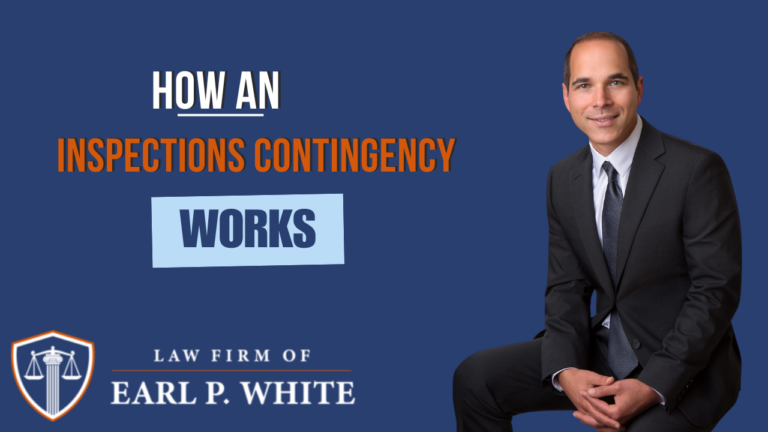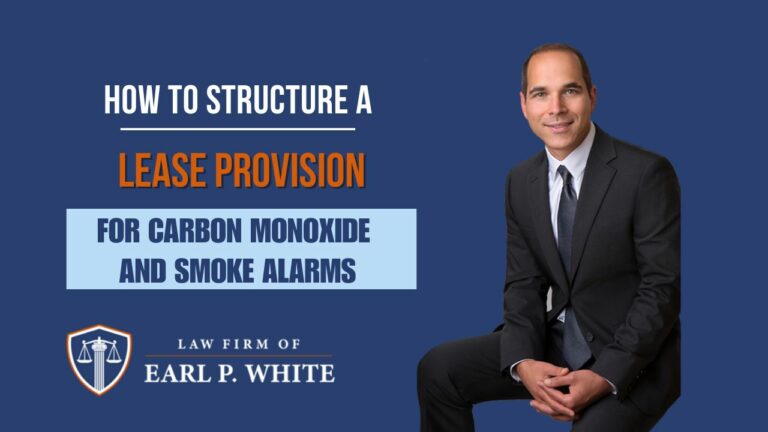Selling a house with a tenant in New Jersey presents practical and legal challenges. Tenants might restrict property access for showings, inspections, and appraisals. Tenant protection laws limit the legal grounds for tenant removal.
Prospective buyers may not make offers due to potential headaches. Lenders typically do not approve owner-occupied mortgages if a buyer cannot move-in within sixty days. Selling a home, condo, cooperative, or multifamily property with a renter makes an already complicated process more difficult.
Read on for guidance on how to sell property with a tenant in New Jersey, strategies and laws on tenant removal during the sale, and contract protections for landlords. Call us at 201-389-8275 or visit the Contact Us page for assistance with real estate purchase and sales.
Subscribe to our free Real Estate Law Newsletter to unlock our free resource 7 Laws You Need to Know When Selling Real Estate With a Tenant in New Jersey (including handling security deposits, tenant removal grounds, and hardship stays). Join today!
Pros and Cons
Once you’ve decided it’s time to sell your rental property in New Jersey, you have two options: (1) remove tenants prior to the closing; or (2) sell the property with tenant presents.
Should you sell the property with the tenant present in New Jersey? Both approaches have advantages and disadvantages.
Advantages to Selling With a Tenant
Reduce Stress and Hassle. Removing a tenant is not straightforward. Tenants are entitled to two-months notice before being required to vacate (if the buyer intends to personally occupy) or there may be no legal grounds to force the tenant to remove (if the prospective buyer does not intend to occupy the property). There may be difficult conversations with tenants, managing a move out, and repairs/clean-up once the tenant leaves.
Faster Sale. Tenants with an active lease must consent to the lease being terminated. Tenants with an expired lease are entitled to two-months notice to vacate if the offer on the property requires them to vacate before the closing. This can result in closings multiple months away. Closings with tenants in place normally happen in 30-45 days.
Investment Property. If you are renting investment property (such as multi-family, mixed-use, or commercial) it may be desirable to have tenants in place. The buyer will have cash flow immediately upon taking ownership. Even if the prospective buyer is not an investor and planning to live in one of the units, rental income can help the buyer satisfy required debt-to-income ratios for their mortgage. Buyers may be particularly interested in keeping the tenants if there are favorable lease terms, no rent control limitations, history of on-time rent payments, and a substantial security deposit.
Avoid Lost Rent Income. Cash flow stops once tenants vacate. Sellers may increase overall net gains by receiving rent up until the date of closing. In the event the sale falls through prior to the closing, there is no vacancy period.
Disadvantages to Selling With a Tenant
Difficulties for Showings and Access. Property must be accessed numerous times during a sale. Initial showings, property inspections, appraisals, government inspections for certificates of occupancy and smoke certificates, contractors for pre-closing repairs, and final walkthroughs. Tenants – particularly if they are not happy about the sale – may make scheduling difficult.
Smaller Buyer Pool. Closing with a tenant is a deal breaker for buyers that needs to immediately move in after the closing. Less offers results in higher days on market.First-time home buyers may be nervous about removing occupants after the closing. Lenders typically require owner occupant buyers to move-in within sixty days of the closing and tenants with a long-term lease would result in a mortgage denial. See the standard Fannie Mae/Freddie Mac MERS Form 3031 provision requiring occupancy within sixty days:

Lower Sale Price. Less offers removes the opportunity to create a bidding war to drive up price. Sellers also are limited in making repairs to increase the value of the property prior to the listing if tenants are present.
Removing a Tenant During the Sale
New Jersey tenants enjoy significant protections under the New Jersey Anti-Evicition Act. However, legal and practical strategies exist in order for a tenant to vacate prior a closing.
N.J.S.A. 2A:18-61.1(l)(3) – Vacant at Closing For Owner Occupancy
A tenant may only be required to vacant during the sale process where: (1) the property is three or less residential units; (2) the contract of sale requires the unit vacant; (3) the buyer intends to personally occupy the unit; and (4) the tenant is month-to-month or has an expired lease. See N.J.S.A. 2A:18-61.1(l)(3) (“The owner of a building of three residential units or less . . . has contracted to sell the residential unit to a buyer who wishes to personally occupy it and the contract for sale calls for the unit to be vacant at the time of closing.”)
Tenants are entitled to two months’ notice prior to being evicted under N.J.S.A. 2A:18-61.1(l)(3). See2A:18-61.2 (f) (“For an action alleging any grounds under subsection l. of section 2, two months’ notice prior to the institution of the action and, provided that where there is a written lease in effect no action shall be instituted until the lease expires.”)
N.J.S.A. 2A:18-61.1(d) – Lease Violations
Is a tenant not cooperating with the sale in violation of a written lease?
Non-compliance with a lease is grounds to remove a tenant. Landlords may evict if a tenant “has continued, after written notice to cease, to substantially violate or breach any of the landlord’s rules and regulations governing said premises, provided such rules and regulations are reasonable and have been accepted in writing by the tenant or made a part of the lease at the beginning of the lease term.” See N.J.S.A. 2A:18-61.1(d).
Four conditions must be satisfied before an eviction can be filed for a tenant’s failure to comply with a lease: (1) the tenant must violate the landlord’s rules and regulations; (2) the landlord must give the tenant a notice to cease the violations; (3) the tenant must continue to violate the rules and regulations after receipt of the notice to cease; and (4) the landlord must give the tenant a notice of termination one month before filing the eviction. Rwb Newton Assocs. v. Gunn, 541 A.2d 280, 283 (Super. Ct. App. Div. 1988). “There must be a substantial violation of the rules. That is, a considerable or significant breach — not a minor or trivial transgression.” Diaz v. Perez-Tamayo, 251 N.J. Super. 513, 515 (Super. Ct. 1991) .
Residential leases have a provision that requires the tenant to comply with showings and inspections of buyers. This is a critical protection if a tenant is preventing the sale by not allowing property access. If the tenants lease had a comparable provision and the tenant continues to refuse to abide by the lease, this is grounds to remove the tenant.
For example, the New Jersey Realtors® Standard Form of Residential Lease has the following provision as of 2001: “The Landlord shall have access to the Property on reasonable notice to the Tenant in order to (a) inspect the interior and exterior of the Property, (b) make necessary repairs, alterations, or improvements, (c) supply services, and (d) show it to prospective buyers, appraisers, contractors or insurers.”

Relocation Assistance (Cash for Keys)
Sometimes there is no legal grounds to remove the tenant, the tenant refuses to vacate when legally required, or perhaps the buyer will not wait months for the tenant to leave (i.e. other available real estate opportunties, expiring mortgage approvals, the buyer needing to move-in).
One strategy to resolve here is for the seller to provide financial relocation assistance (referred to as “cash for keys”) to the tenant. This creates win-win scenario. The seller earns higher net sale proceeds by selecting a more profitable offer that requried the tenant to vacate. The tenant receives financial compensation they would not have otherwise received.
Critical terms to be agreed upon in a relocation assistance agreement include:
- Date the tenant must vacate the property (“the surrender date”);
- The tenant’s financial compensation upon vacating;
- Tenant waives any rights of possession as of the surrender date;
- Premises will be left broom clean, no interior or exterior debris/personal item, and no property damage;
- Return any keys and other means of access upon surrendering the property.
Removal of the Tenant After the Sale
An ideal opportunity to to request the buyer re-consider accepting a tenant at closing is when a target closing date is approaching and the tenant does not have an imminent relocation plan. Buyers initially reluctant to close with a tenant often change their mind rather than delay the closing or risk losing their mortgage approval.
After the buyer closes, a buyer can remove the tenant where: (1) the property is three or less residential units; (2) the owner seeks to personally occupy the unit; and (3) the tenant is month-to-month or has an expired lease. See N.J.S.A. 2A:18-61.1(l)(2) (“The owner of a building of three residential units or less . . . . seeks to personally occupy the unit.”). Two months’ notice is required. See NJSA 2A:18-61.2 (f).
Contract Protections For Landlords
The standard New Jersey Realtors® purchase and sale contract does not include all protections landlords may desire as part of the sale. Protections can be added by a real estate attorney during the three-day attorney review process. For “for sale by owner” transactions without a Realtor® an experienced real estate attorney can help draft a strong purchase and sale agreement.
Limiting Liability in the Event Tenant Fails to Vacate. Real estate contracts that require a property to be delivered vacant create a legal obligation on the part of the seller to remove the tenant. If the landlord fails to remove the tenant in time for the closing (despite best efforts), this can be deemed a breach of contract and subject the landlord to a lawsuit.
A provision limiting the buyer’s legal remedies if the tenant fails to vacate can prevent liability, for example: “Should the tenant fail to vacate the Property, the Buyer’s sole remedy is to cancel the Contract with the return of any deposit monies.”
Attornment Letters. A letter of attornment is a written notice from a landlord to a tenant that the property was sold and directing the tenant to pay rent to the new owner. It is a good practice for the seller to send an attornment letter following the closing to avoid any disputes.
Lease Assignment. Parties often assume (incorrectly) that upon closing the rights to the lease automatically transfer to the new owner. Leases are contracts between landlord/tenant, and like others contractual rights, the rights must be transferred from the prior owner (seller) to the new owner (buyer).
The proper legal mechanism for this transfer is an “assignment” of the lease from the owner to the buyer. The assignment of a contract is the transfer by one party to a contract of all of the obligations and privileges the party holds in the agreement to a third party.
For a simple residential transaction, one contractual provision may be sufficient. A formal “Assignment and Assumption of Tenant Lease” that transfers all of the right, title and interests, and obligations to the new buyer should be utilized for mixed-use or commercial properties.
The process of selling tenant occupied property in New Jersey were laid out in this guide. Understanding the basics of tenant removal laws, the pros and cons, and contractual provisions can assist in a successful sale process. Connect with an experienced attorney and Realtor for guidance.
Conclusion
This guide applies to selling a house with a tenant in Newark, Jersey City, Hoboken, Paterson, Elizabeth, Union City, West New York, Bayonne, East Orange, West Orange, North Bergen, Clifton, Bloomfield, New Brunswick, Atlantic City, and across Bergen County, Essex County, Hudson Couny, Union County, Morris County, Somerset County, Atlantic County, Monmouth County, Middlesex County, Ocean County, and Passaic County.
Subscribe to our free Real Estate Law Newsletter to unlock our free resource 7 Laws You Need to Know When Selling Real Estate With a Tenant in New Jersey (including handling security deposits, tenant removal grounds, and hardship stays).
Stay ahead with our free newsletter: The Real Estate Law Newsletter – your source for real estate law news.
Essential updates and insights direct to you. Impress clients and colleagues with trending news. Sharpen expertise. Stay legally compliant. Access free legal forms. Don’t miss out – join today!









